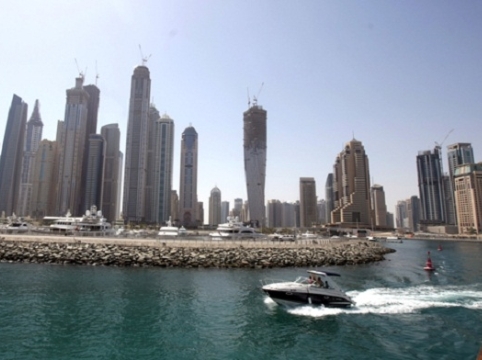Despite Iran-Israel tensions, investors in the Gulf undeterred

By Dina Al-Shibeeb, AL ARABIYA
Despite the rising tensions between Israel and Iran and the increased speculations over yet another devastating war in the Middle East, investors' confidence in the Gulf region remains intact.
Recently, Iran used its regional proxy ally Hezbollah to "test" a drone in the Israeli skies. Weeks later, Israeli warplanes bombed a weapons factory in Sudan which was allegedly used by Iran to manufacture missiles and weapons supplied to Hamas in Gaza.
Iran responded to the bombing by dispatching its war ships to the Sudanese coast in a show of solidarity with Khartoum. The muscle flexing continues on both sides, raising stakes of war in the region.
Investors in the region, nevertheless, do not seem to panic or even be mindful of the tensions. Money continues to pour in the region and investment projects of all sizes are taking place as they would in any relatively stable situation.
The Arab Spring -- its aftermaths -- is one factor. Many wealthy people from Egypt, Tunisia, Libya, and Syria, have escaped the turmoil or accountability in their countries to settle in Gulf states.
"Many would like to settle in the UAE for instance. They are transferring their investment here," Wadah Taha, a Dubai-based investment officer, told Al Arabiya, adding "the unrest in many Arab Spring countries and the disappointment from the result of these types of revolutions made a lot of changes in the map of investment."
While countries hit by the Arab Spring are seen to be of higher-risk, Gulf States have low-risks and offer investment opportunities.
Taha said the tensions between Iran and the West are unlikely to develop into a major war, that would further damage an already suffering global economy.
"It is not as easy to make a decision of war. This whole world is on a cliff. And now the world economy gradually recovering, they can't establish a big war in the region and really put everything on fire."
According to Taha, U.S. and EU sanctions imposed on Iran are paying off as the Islamic Republic is suffering from high inflation and weak currency.
The sanctions have pushed Iran recently to ban the export of about 50 basic goods to preserve its supplies.
"[The sanctions] is creating frustration from a social point of view. Probably one of the scenarios is that the war is coming from inside not from an outside attack," Taha said in reference to how the Iranian people toppled Shah Mohammed Reza Pahlavi in 1979.
Besides, Iran and some Arab Gulf countries, have strong economic ties, even if they are not in good terms politically.
"There are a lot of Western interests in the Gulf...Even in Iran, we have huge trade between Iran and UAE," Taha said. "Even the Iranian cannot in the short term replace this point of trade, they can't. "
Here we are to serve you with news right now. It does not cost much, but worth your attention.
Choose to support open, independent, quality journalism and subscribe on a monthly basis.
By subscribing to our online newspaper, you can have full digital access to all news, analysis, and much more.
You can also follow AzerNEWS on Twitter @AzerNewsAz or Facebook @AzerNewsNewspaper
Thank you!
